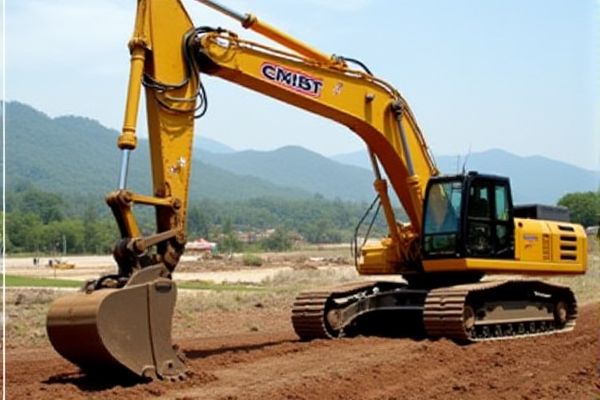
Geotechnical engineering in Thailand offers a range of job opportunities driven by rapid infrastructure development and urbanization. Professionals in this field can find positions in various sectors, including construction, environmental consulting, and public works. Organizations are often looking for expertise in soil mechanics, foundation design, and site investigation to support diverse projects. Certifications and experience with local regulations can enhance job prospects in this competitive market.
Job Description
Geotechnical engineering jobs in Thailand involve assessing soil and rock properties to ensure the stability and safety of infrastructure projects. Professionals in this field conduct site investigations, analyze data, and create reports that guide construction practices. Your role may include collaborating with multidisciplinary teams to design foundations, retaining structures, and earthworks tailored to the specific geological conditions of Thailand. Opportunities exist in both public and private sectors, with an increasing demand for experts due to ongoing urban development and investment in infrastructure.
Requirement
Geotechnical engineering jobs in Thailand typically require a degree in civil or geotechnical engineering, along with relevant work experience in soil mechanics, foundation design, and site investigation. Proficiency in engineering software, such as Plaxis or GeoStudio, is often essential for analyzing geotechnical problems and designing solutions. Strong communication skills are important for collaborating with multidisciplinary teams and presenting findings to clients or stakeholders. Familiarity with local construction regulations and environmental standards in Thailand will enhance your eligibility for these roles.
Salary and Perks Expected
Geotechnical engineering jobs in Thailand offer competitive salaries that can vary based on experience and expertise, typically ranging from THB 30,000 to THB 100,000 per month. In addition to attractive pay, many positions include benefits such as health insurance, performance bonuses, and opportunities for professional development. The demand for skilled geotechnical engineers is increasing as infrastructure projects grow, which enhances job stability and advancement prospects. Your career in this field in Thailand can lead to exciting projects in urban development, transportation, and environmental engineering.
Similar Job Names
- Geotechnical Engineer
- Geotechnical Design Engineer
- Site Geotechnical Engineer
- Geotechnical Project Manager
- Geotechnical Consultant
- Senior Geotechnical Engineer
- Geotechnical Field Engineer
- Geotechnical Analyst
- Ground Investigation Technician
- Soil Testing Technician
- Geotechnical Site Supervisor
- Rock Mechanics Engineer
- Foundation Engineer
- Geoenvironmental Engineer
- Engineering Geologist
Job Expectation Concept
Geotechnical engineering jobs in Thailand revolve around assessing soil and ground conditions to ensure the stability and safety of construction projects. Your responsibilities may include conducting site investigations, laboratory testing, and geotechnical analysis to inform design decisions. Professionals in this field often collaborate with architects, civil engineers, and environmental scientists to address challenges posed by Thailand's diverse geological landscape. Staying updated on local regulations and sustainable practices is crucial for successful project execution and environmental stewardship.
Career Advantage and Weakness
Geotechnical engineering jobs in Thailand offer excellent career advantages, including a growing demand for infrastructure development and urbanization projects. Your expertise in soil mechanics and foundation design can significantly contribute to large-scale constructions such as roads, bridges, and buildings, enhancing workplace stability. Despite these opportunities, challenges exist, such as fluctuations in project funding and potential exposure to harsh environmental conditions. Building a robust network and staying updated with local regulations can help navigate these weaknesses effectively.
Important Thing Must Know
Geotechnical engineering jobs in Thailand often involve working on infrastructure projects such as roads, bridges, and tunnels due to the country's ongoing development. A strong understanding of local soil conditions and geology is essential, as the diverse terrain can present unique challenges. Employers typically seek candidates with a relevant degree in civil or geotechnical engineering, along with practical experience in soil testing and analysis. Networking within the industry can significantly enhance your job prospects, so consider joining professional organizations or attending local seminars. As Southeast Asia continues to grow, the demand for skilled geotechnical engineers in Thailand remains strong, offering various career opportunities.
Alternative Career Options
Geotechnical engineers in Thailand can explore various alternative career options that leverage their expertise. Opportunities exist in environmental consulting, where you can focus on soil contamination and remediation projects, contributing to sustainable practices. Project management roles in construction firms allow for oversight of geotechnical studies and effective communication with stakeholders. Additionally, roles in academia provide the chance to teach and influence the next generation of engineers while conducting research on local geological challenges.
Companies List
- AECOM
- Geosyntec Consultants
- Buro Happold
- Ramboll
- Golder Associates
- Fugro
- Arup
- DMT Group
- Mott MacDonald
- Slope Engineering Australia
List of Ideal City
Bangkok stands out as a prime location for geotechnical engineering jobs, boasting a diverse range of infrastructure projects and ongoing urban development. Chiang Mai offers an expanding market, particularly in construction and environmental assessments, appealing to engineers seeking opportunities outside the capital. Phuket presents a unique blend of tourism and engineering needs, with numerous developments requiring geotechnical expertise for sustainable projects. Nakhon Ratchasima and Khon Kaen also show potential, focused on regional development initiatives and transportation infrastructure, creating openings for skilled professionals in geotechnical engineering.
 jobs-thailand.com
jobs-thailand.com